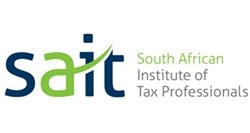Public must be vigilant of fraudsters

"It is impossible for any tax practitioner or advisor to legally guarantee a refund for tax returns," says head of Tax Technical at SAIT, Professor Sharon Smulders. "Assessment for tax refund or liability is a strict technical and legal process, and is based on an individual to individual basis."
Anyone promising clients tax refunds in return for a cut of the refund is clearly operating outside the law on at least two counts. The only way a refund can be 'guaranteed' upfront is if fraudulent information is submitted in a tax return.
Furthermore, percentage based professional fees based on the amount of refund are not permitted for registered tax practitioners since the regulation of tax practitioners became effective on 1 July 2013, explains Chris van Dyk, Legal and Compliance officer at SAIT.
Tax payer is responsible
According to SARS, registered tax practitioners offer important services to tax payers by assisting them with their tax affairs; but in addition to a minority of those registered who might be dishonest, there are some individuals who pretend to be tax practitioners with the intention of defrauding SARS and the unknowing taxpayer. This puts the tax payer at risk of criminal sanction as they are ultimately responsible for tax returns submitted in their name, even if done by a third party.
One of the key objectives of the Tax Amendment Act 2012 is to protect the public against rogue tax practitioners. "All tax practitioners and advisors had to have registered with one of the recognised professional controlling bodies by 1 July of this year. The onus is on the tax payer to ensure that their tax advisor is registered as a tax practitioner with both SARS and a recognised professional body. Tax payers can verify their tax practitioners' registration status at no charge, by contacting SAIT, no matter where the advisor is registered," adds Van Dyk.
































